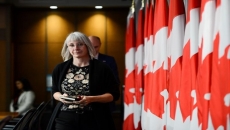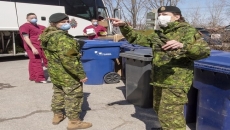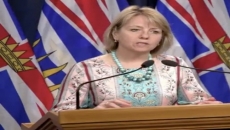The B.C. Fruit Growers Association says the impact of the COVID-19 pandemic on its industry has been devastating.
The association says a survey of its members shows more than 67 per cent of farmers have reduced fruit production because of uncertainties linked to the pandemic.
A statement from the association says there is a "real threat" to food security as producers cut crops to survive.
The survey shows 81 per cent of farmers are concerned about paying additional costs linked to public health guidelines in response to the pandemic.
It also finds 87 per cent of farmers worry they won't have enough hired labour to bring in their crops.
Association president Pinder Dhaliwal says the survey raises significant questions about where fruit will be coming from this fall and how much it will cost.
"We knew things would be bad coming into the growing season this year, but these numbers are extremely troubling even to those of us in the industry," Dhaliwal says in the statement.
Glen Lucas, the association's general manager, says the pandemic has underscored the "tenuous state" of B.C.'s agriculture sector.
"If we don't start to address some of the structural issues in our industry, food security and the food supply chain are at the mercy of whatever the next natural disaster is to come along," he says.
Financial supports from the federal and provincial governments, including COVID-related emergency measures are appreciated, but Lucas says many challenges remain.
The association points to three years of depressed apple prices that have pushed the cost of production above the price growers receive for their crops.
B.C.'s Interior tree fruit industry represents 800 growers with wholesale revenues of $118 million, the association says.






